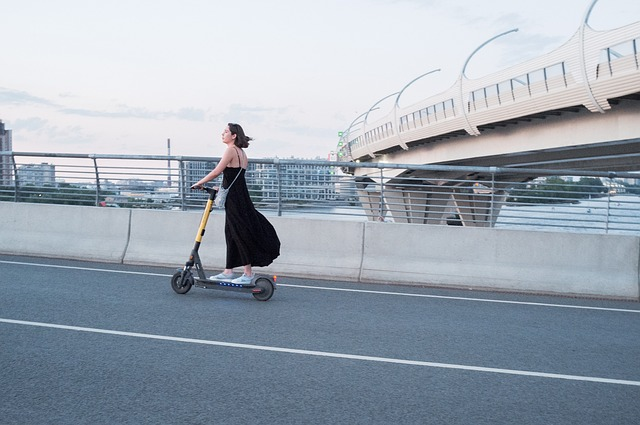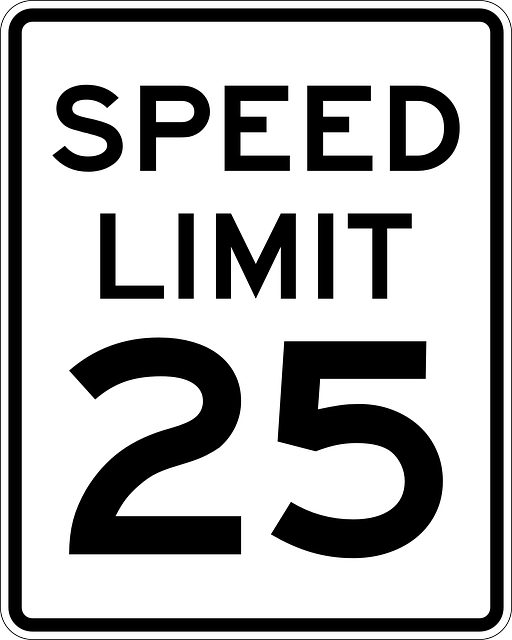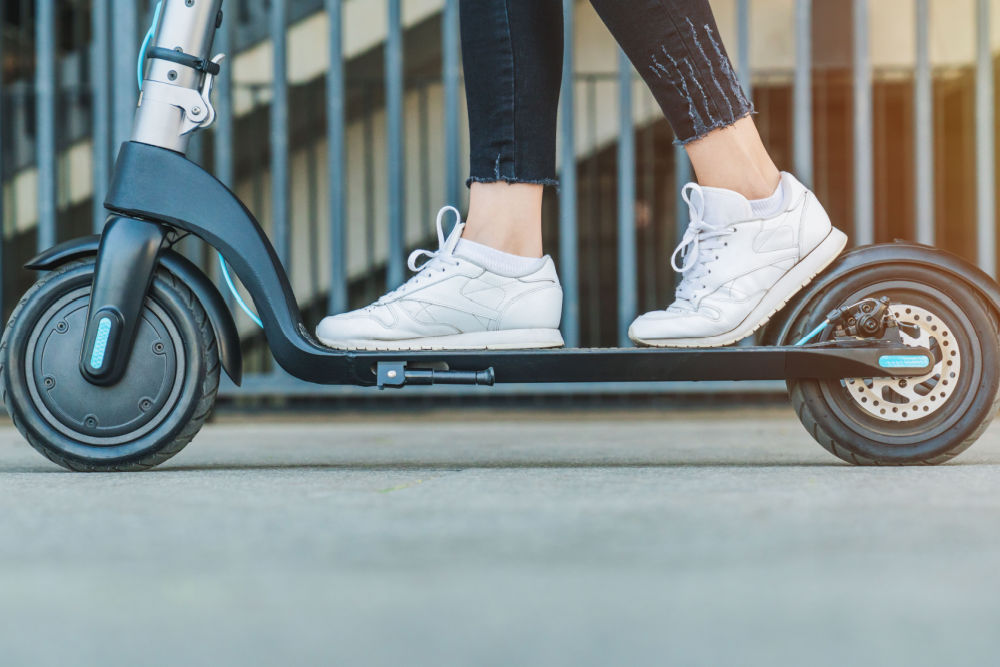Overview of Electric Scooters
Electric scooters have become increasingly popular in recent years as a convenient and eco-friendly mode of transportation. With their growing popularity, it's important to be aware of the laws and regulations surrounding electric scooter usage, especially if you reside in Georgia. This article aims to provide a comprehensive overview of Georgia's electric scooter laws, covering licensing requirements current registration,, riding regulations, safety measures, and more.

Electric Scooter Laws in Georgia
Georgia has specific laws same rules and regulations in place to govern the use of electric scooters. These laws aim to ensure the safety of both riders and pedestrians while promoting responsible usage of these vehicles. By understanding and adhering to these laws, electric scooter companies and riders can enjoy a smooth and hassle-free riding experience.
Licensing and Age Restrictions
To legally operate on an electric scooter legally in Georgia, riders must have a valid driver's license or a full learner's permit or driver's license or permit. This requirement ensures that riders have a basic understanding of traffic rules and regulations. Additionally, there is a minimum age requirement for electric scooter riders, typically set at 16 years old. It is crucial for riders to meet these licensing and age restrictions to avoid potential legal consequences.

Riding Regulations and Safety Measures
When riding an electric scooter in Georgia, it is essential to follow specific regulations to ensure personal safety and the safety of others. Firstly, riders must obey all traffic laws, including traffic signals stop signs and speed limits. It is important to be aware of the surroundings and ride defensively, especially in high-traffic areas. Using designated or used bike lanes, paths, lanes and bike paths and, when available, can further enhance safety for both gas powered scooters riders and pedestrians.
Helmet Requirements
Wearing a helmet is a vital safety measure when operating an electric scooter in Georgia. Although helmet laws may vary by city, it is highly recommended for e scooter riders of all ages to wear a helmet at all times. Wearing a helmet can significantly reduce the risk of head injuries and ensure the one e scooter rider's well-being in case of accidents or collisions.

Speed Limits and Road Usage
In Georgia, electric scooters are subject to obey the same traffic and very same traffic laws, need a license minimum speed limit and limits as bicycles. Typically, this means that scooters should not exceed the maximum speed limit specified for bicycles, which is usually around 20 miles per hour. Riders of e scooter should also be cautious when sharing the road with other vehicles, yielding to pedestrians and avoiding reckless maneuvers.

Parking and Docking Regulations
Proper parking and docking of electric scooters are crucial for maintaining order in public spaces. In Georgia, riders are generally required to park their scooters in designated areas or designated scooter parking zones. It is important not to obstruct sidewalks, walkways, or entrances when parking the scooter or loading zone. By following these regulations, riders contribute to the overall accessibility and safety of public spaces.
Liability and Insurance
Understanding liability and insurance obligations is essential for electric scooter riders in Georgia. While specific insurance requirements may vary, riders are generally responsible for any damages or injuries caused while operating an electric scooter. It is advisable to check with your insurance provider to determine if your existing policy covers electric scooter usage. If not, acquiring additional coverage may be necessary to protect yourself and others in the event of an accident.

Penalties and Fines
To ensure compliance with electric motorcycle license scooter laws, Georgia imposes penalties and fines for violations. The exact penalties may vary depending on the specific offense committed. Common violations include riding without a valid driver, learner's permit or motorcycle license either, operating an electric motor or scooter under the legal age, disregarding traffic laws, and riding under the influence of alcohol or drugs.
Penalties for such infractions can range from fines to potential license suspension. It is important to familiarize yourself with these penalties to avoid any legal consequences and to prioritize the safety of yourself, motor vehicle, the person operating the motor vehicle need a license on, and others.
Public Perception and Future Outlook
The emergence of electric bicycles and scooters has sparked various discussions regarding their impact on urban mobility and public safety. While some people embrace this eco-friendly mode of transportation, others express concerns about potential accidents, traffic lights, sidewalk congestion, bike lane,, and the overall integration of these electric bicycles and scooters into existing transportation systems.
Cities in Georgia are continually adapting their regulations to address these concerns while promoting sustainable transportation options. Public perception plays a significant role in shaping the future of electric scooters in the state. By adhering to the laws and regulations in place, riders can contribute to a positive image of electric scooters and help ensure their continued acceptance and integration into the transportation landscape.

Are Electric Scooter Laws in Georgia Different Than Other States?
In the world of eco-friendly transportation, electric scooters have emerged as a popular choice. But how do electric scooter laws vary across states, and notably, is Georgia any different?
Comparing Georgia's Electric Scooter Laws with Other States
California
In sunny California, scooter laws are quite similar to Georgia's. The age limit is also 16, and helmets are recommended but not required. However, California does allow electric scooters on bike paths and trails, unlike Georgia.
New York
Switching coasts to New York, we see some significant differences. New York has only recently allowed electric scooters, and the regulations are stringent. Riders must be 16, helmets are mandatory, and scooters are not allowed on sidewalks, bike lanes, or roads with a speed limit over 30 or 35 mph or less either.
Texas
The Lone Star state, Texas, offers a relaxed stance one scooter only. There are no explicit age or helmet requirements, and scooters can be ridden on most roads and bike lanes.
Florida
Lastly, in Florida, there's no age limit for riders, but helmets are compulsory for those under 16. Scooters can be ridden on sidewalks, unlike in Georgia.
Why are Georgia's Electric Scooter Laws Different?
Looking at these comparisons, why does Georgia stand out? Three factors play a critical role: safety considerations, infrastructure, and local culture.
Safety Considerations
Georgia's laws prioritize safety. With its restriction on sidewalk riding, the state seeks to protect pedestrians from potential accidents.
Infrastructure and Urban Planning
Georgia's urban infrastructure is also a factor. The state's roadways are better suited for scooters than sidewalks, influencing the decision to limit scooter use to certain roadways.
Local Culture and Preferences
Lastly, local culture and public opinion in Georgia have shaped these laws. The preferences of residents, coupled with Georgia's unique way of life, have resulted in regulations that reflect the state's character and meet the community's needs.
Consequences of Different Laws
Differences in electric scooter laws from state to state can have various impacts.
Impact on Users
For riders, these differences can affect their freedom to use electric scooters, their safety, and their ability to adhere to the laws. For instance, an individual who's accustomed to Georgia's laws may struggle to adapt when riding in New York, where the laws are stricter.
Impact on Electric Scooter Companies
For electric scooter companies, different laws mean they must adapt their operations and strategies to each state, which can affect their business model, profitability, and expansion plans.
Electric scooter laws do vary from state to state, with Georgia showcasing its unique approach. These differences reflect each state's culture, infrastructure, and safety considerations, impacting both users and companies. As electric scooters continue to grow in popularity, we can expect these laws to evolve, maintaining the delicate balance between convenience, safety, and regulation
Conclusion
In conclusion, Georgia's electric scooter laws aim to strike a balance between promoting sustainable transportation and ensuring public safety. By understanding and following these laws, riders can enjoy the benefits of electric scooters while minimizing risks and potential legal issues.
It is crucial to obtain the necessary licensing, adhere to age restrictions, and follow riding regulations for other motor vehicles, including wearing a helmet and obeying traffic laws. Additionally person riding alone, being aware of parking regulations, liability, and insurance requirements for motor vehicles is essential to protect oneself and others.
As the popularity street legal and of electric scooters continues to grow, it is important for riders to stay informed about any updates or changes in the laws to maintain a safe street legal and enjoyable riding experience. By doing so, we can collectively contribute to the positive integration of electric scooters into Georgia's transportation landscape.
FAQs (Frequently Asked Questions)
Are electric scooters legal in Georgia?
Yes, both electric bicycles and scooters are legal in Georgia, but they are subject to specific laws and regulations.
What is the minimum age to ride an electric scooter in Georgia?
The minimum age to ride an electric scooter in Georgia is typically 16 years old.
Do I need a driver's license to operate an electric scooter in Georgia?
Yes, a valid driver's license or learner's permit is required to to legally operate a moped, either a moped or an electric scooter legally in Georgia.
Are helmets mandatory when riding an electric scooter in Georgia?
While helmet laws may vary by city, it is highly recommended for riders of all ages to wear a helmet at all times.
What are the penalties for violating Georgia electric scooter laws and traffic laws?
Penalties for violating electric scooter laws can range from fines to potential license suspension, depending on the offense committed.

